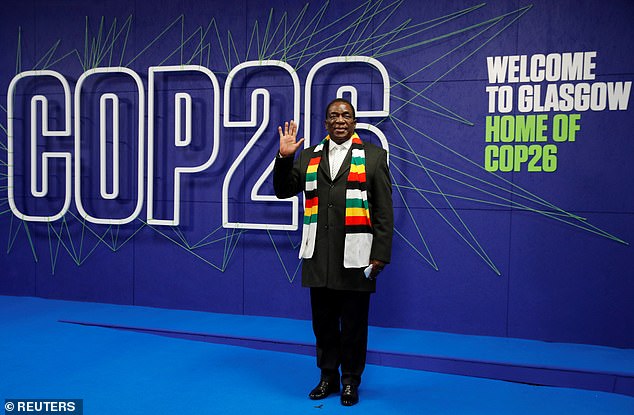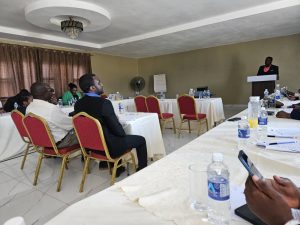…manifestos ignore environment, climate change
… ‘environmental issues do not make sense to electorate’
Upenyu Chaota
As the country braces for the March 26 by-elections and ultimately the 2023 harmonised elections, there has been a growing call from environmentalists and climate change advocates to put issues of the environment and climate change on the agenda.
In a country that cannot meet the basic needs of its citizens, political parties and candidates have always omitted environmental issues from their manifestos, choosing to focus on more popular socio-economic issues.
This was confirmed by environmentalist and climate change researcher Anna Brazier who told EnviroPress that politicians generally do not fully appreciate the long-term impact that climate change has had on the country’s economy.
“Although scientists have produced a lot of very good research about the impact and potential progressions in terms of rainfall decline and temperature increases, politicians don’t really appreciate what this will do to the economy.
“What many politicians and potential politicians in Zimbabwe don’t realise is that the country’s economy is totally depended on natural resources. Therefore, if we don’t look after and manage our natural resources, then we don’t have an economy,” said Brazier.
She said voters also do not understand environment and climate change issues hence politicians do not campaign on green manifestos.
“Many potential voters do not really think about the environment and this is where organizations like EnviroPress and other media houses come in to help spread knowledge on the importance of conserving the environment and natural resources.
“The media play a critical role in educating the voters on climate change. The media should take a leading role in lobbying for these green manifestos. The environment must be put on the agenda.
“Let’s get people talking about the environment, climate change and conservation of our natural resources,” said Brazier.
Analyst and Great Zimbabwe University (GZU) lecturer Dr Last Alfandika described the deafening silence on environmental and climate change issues ahead of the by-elections as a tragedy.
“By omitting environment and climate change issues in their manifestos, political leaders are doing the country a big disservice.
“The problem is that our politicians do not understand the importance of environment and climate change despite the increasing frequency of such disasters as cyclones, droughts and heat waves. They lack knowledge of such important issues,” said Dr Alfandika.
He said it was unfortunate that in the local body politic, environment and climate change issues have not yet become key electoral issues.
“It now calls for the civil society to join hands with experts and communication specialists so that they advocate for knowledge not to politicians alone but to the general public. The people are the ones who are affected by these issues on day to day basis.
“When the people understand what it means when we talk about climate change and environmental protection, it will be easier to draw the attention of politicians,” Dr Alfandika said.
However, the newly-formed Citizens’ Coalition for Change (CCC), which is led by prominent opposition politician Nelson Chamisa claims it has a green recovery plan for Zimbabwe.
“The CCC government will prioritize and adequately fund and incentivise protection and preservation of our environment. We believe that the environment is currently being held in trust by present generations for future generations.
“It is therefore imperative to protect the flora and fauna, soil and river catchments and to establish cities and towns that are climate smart. It is our intention to establish a green Zimbabwe.
“The CCC affirms its commitment to effectively respond to the threats of climate change in ways that will achieve socio-economic transformation and development,” said CCC national spokesperson Fadzayi Mahere in response to questions from EnviroPress.
Mahere said the climate change policy will be implemented within the confines of the Zimbabwean Constitution, the Bill of Rights, as well as other international agreements to which the country is a party to.
In implementing the climate change policy, CCC said their objectives would be to mainstreaming climate change, standardising and regulating emissions, prioritising capacity building on climate change, investing in ICT for climate change, contributing to regional and international climate change responses.
Zanu PF national spokesperson Christopher Mutsvangwa had not responded to questions from EnviroPress by the time of publishing.
Speaking on condition of anonymity, one Zanu PF Member of Parliament (MP) said it was impossible to campaign on environment and climate change issues because ‘they do not make sense to the electorate’.
“Going to the electorate and say I bring environment and climate change issues to you will be suicidal. It’s like you stand for nothing and you will not get any votes. People want bread and butter. We have to promise them development and not environment and climate change,” the legislator said.
This report was made possible through support from WAN-IFRA Media Freedom’s Strengthening African Media Programme: Climate Change and Environmental Reporting. Views expressed here do not belong to WAN-IFRA.






